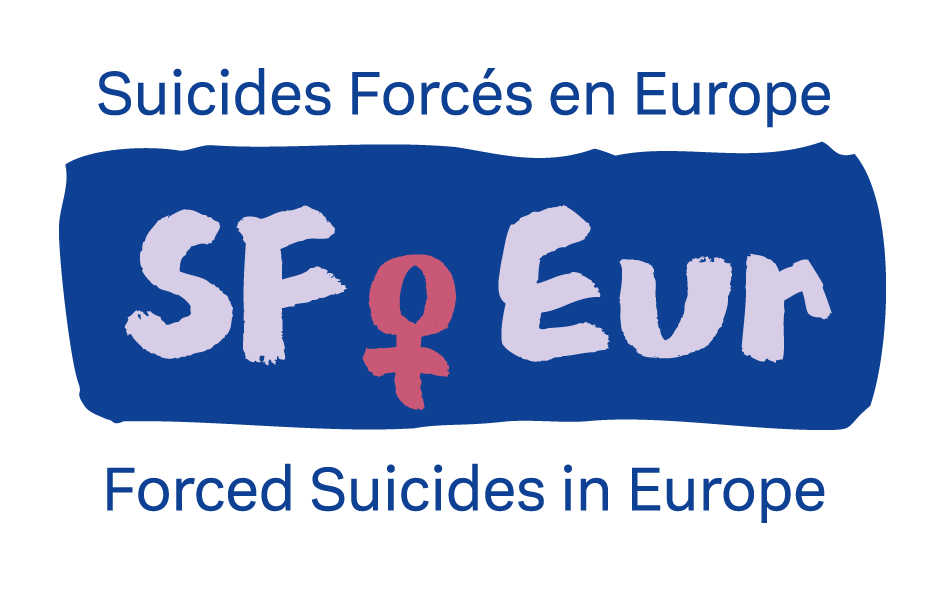Women victims of forced suicide: Moral harassment with aggravating circumstance of suicide or attempted suicide punishable by French law
The appearance of the concept of forced suicide in French law:
Before 2020, in France, when moral harassment in a couple pushed, among the psychological consequences, the female victims to commit suicide in order to get out of the mental prison in which they had been locked up by their executioner, no element of the penal code allowed to punish him. This observation was all the more frightening as it differed when these facts took place in the sphere of work, the perpetrators of moral harassment at work being prosecuted. Indeed, a legislation of January 17, 2002 of social modernization integrated the offense of moral harassment at work, ratifying, in doing so, years of prudhommal jurisprudence.
With regard to moral harassment within the couple, more than eight additional years were necessary for the law of July 9, 2010 on violence against women to amend the criminal code in order to insert the offense of moral harassment between ( ex) spouses.
- Legal definition of moral harassment: Moral harassment within the couple consists of “repeated acts having as their object or effect a deterioration in the living conditions [of the spouse, partner bound by a civil solidarity pact or cohabitant] resulting in an alteration of his physical or mental health“(1).
There will also be moral harassment within the couple when:
“these words or behaviors are imposed on the same victim by several people, in concert or at the instigation of one of them, even though each of these people has not acted repeatedly;
these words or behaviors are imposed on the same victim, successively, by several people who, even in the absence of consultation, know that these words or behaviors characterize a repetition“(2).
The penalty incurred for this offense of moral harassment varies between one year and five years of imprisonment depending on the duration of the incapacity for work that it generates and a certain number of aggravating circumstances (3).
Definition of moral harassment in a couple for female victims: Moral harassment includes all micro-violence, namely, lies, sarcasm, insults, contempt, humiliation, denigration, isolation, financial dependence, threats.
For the victim of bullying, there are many psychological consequences. This psychological violence is the cement of the violence without which no woman, no individual, can accept the unacceptable, tolerate the intolerable. Because after possessing his mind, the executioner will need to possess his body. And irreversibly, physical violence will set in. And, in a certain number of cases, this violence has a fatal outcome. Indeed, death is often the outcome of such violence.
“Forced suicide”, provoked suicide or even induced suicide is the name given to these situations where women victims of psychological violence kill themselves led to this by manipulation, influence and the unbearable suffering they experience. In a context of domestic violence, suicide appears, for a majority of women, to be the only bearable outcome following the harassment and suffering inflicted by the violent spouse. Indeed, according to a survey carried out in France by the Citoyenne féministe movement in 2019, 76% of victims of domestic violence would have suicidal thoughts (4).
Despite these alarming figures, until 2020, there was no legal tool to prosecute the perpetrators who pushed their victims to suicide, as was the case for other intentional violence.
Grenelle against domestic violence: This is the reason why Yaël Mellul, a fervent defender of the rights of women victims of violence between partners, called on Marlène Schiappa, Secretary of State in charge of Equality between women and men and the fight against discrimination, on the issue of psychological violence, influence and forced suicides. Not without difficulty, a “psychological violence and influence” working group was finally created as part of the Grenelle against domestic violence.
The Grenelle is a set of round tables organized by the French government between September 3 and November 25, 2019 (date corresponding to the international day for the fight against violence against women). Its objective was to bring together a certain number of key players (associations, families and relatives of the victims, lawyers, health professionals, ministers, etc.) so that they could identify measures to effectively combat domestic violence. This objective was based on three fundamental pillars: prevention, protection and care, and repression.
Among the measures that have succeeded is the integration of forced suicide into French law.
To achieve this, Yaël Mellul collaborated with Véronique Wester-Ouisse, lecturer in private and criminal law and deputy prosecutor in Quimper. The latter made it possible to draw up a picture of the existing incriminations and to note that none could be applicable in the event of suicide caused by the repeated violence and humiliation of a spouse. The solution found was therefore to introduce an aggravating circumstance in the law against moral harassment.
Thus, when moral harassment within the couple led the victim to commit suicide or attempt to commit suicide, the penalty for the perpetrator is ten years’ imprisonment and a fine of 150,000 euros(5).
This is why Yaël Mellul questioned Marlène Schippa, Secretary of State for Equality between Women and Men and the Fight against Discrimination on the issue of psychological violence, influence and suicides. strengths. Not without difficulty, a “psychological violence and influence” working group was finally created as part of the Grenelle against domestic violence.
The Grenelle is a set of round tables organized by the French government between September 3 and November 25, 2019 (date corresponding to the international day for the fight against violence against women). Its objective was to bring together a number of key players (associations, families and relatives of victims, lawyers, health professionals, ministers, etc.) so that they- they can identify measures to effectively combat domestic violence. This objective was based on three fundamental pillars: prevention, protection and care, and repression.
Among the measures that have succeeded, we find the integration of forced suicide into French law.
To achieve this, Yaël Mellul collaborated with Véronique Wester-Ouisse, lecturer in private and criminal law and deputy prosecutor in Quimper. The latter made it possible to draw up a table of the existing incriminations and to note that none could be applicable in the event of suicide provoked by the repeated violence and humiliation of a spouse. The solution found was therefore to introduce an aggravating circumstance in the law against moral harassment.
Thus, when the harassment within the couple has led the victim to commit suicide or attempt to commit suicide, the perpetrator may incur ten years’ imprisonment and a fine of 150,000 euros(5).
(1) Criminal Code, art. 222-33-2-1.
(2) Criminal Code, art. 222-33-2-2, par. 2.
(3) Criminal Code, art. 222-33-2-1 and 222-33-2-2.
(4) FEMINIST CITIZEN, “Domestic violence and suicidal desires”, available at https://blogs.mediapart.fr/citoyenne-feministe/blog/021019/violences-conjugales-et-envies-suicidaires, October 2, 2019.
(5) Criminal Code, art. 222-33-2-1, par. 3.

Contact us
info@forcedsuicidedomesticviolence.eu


